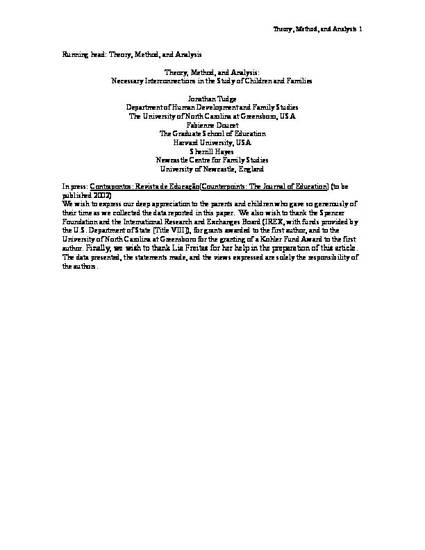
Article
Teoria, Metodo e Analise: as interconexões necessárias no estudo das crianças e das famílias
Contrapontos: Revista de Educação
(2001)
Abstract
In this article, we argue that there must be a clear and consistent connection in research between the theory that we use, the methods that we employ, and the way in which we analyze our data. This is true no matter what aspects of children and families are being studied, although we study children and their families in different cultural contexts. The theoretical approach that we use is derived from Urie Bronfenbrenner’s recent writings. His theory is an ecological and systemic theory, forcing us to examine simultaneously aspects of the developing individual, aspects of the context (immediate, distal, and historical), the interactive processes that link the two and which foster development itself, and to follow that development over time. The research that the first author (Tudge) has been conducting with various colleagues over the past 10 years is the way in which we illustrate how this theory can be applied appropriately.
Keywords
- Urie Bronfenbrenner,
- methodology,
- childhood
Disciplines
Publication Date
2001
Citation Information
Jonathan Tudge, Fabienne Doucet and Sherrill W. Hayes. "Teoria, Metodo e Analise: as interconexões necessárias no estudo das crianças e das famílias" Contrapontos: Revista de Educação Vol. 1 Iss. 3 (2001) Available at: http://works.bepress.com/sherrill_hayes/10/
